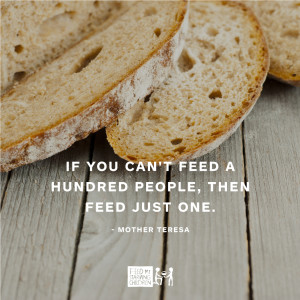It’s my fault, really. I bought the children’s probiotics in the shapes of “fun animals.” Thus we need to pick through them every morning for matching giraffes. Every single child must do this. Rue the day that one of them doesn’t get to rifle through for their own vitamins.
Like today. Rue.
The oldest was trying to be helpful, dispersing the “fishies” (because the first time I purchased children’s probiotics, they were in the shape of fish. Now we’re eating jungle animals, but we still seem to have “fishies.”) but Miss M wanted to get her own. She refused the fishies in front of her. No! Never! I shall not! She insisted.
During the pursuant intervention, I realized a few things about both the situation and the children.
- I set a precedent with a one-person-dispersing standard and the oldest was simply trying to follow the rules. He is a rule follower, like his mother, and in his mind, anyone bucking that system needs called out. Resolved: Asinine rules for the sake of one person’s (read: MY) convenience clearly aren’t helpful.
- The oldest wanted to be helpful. That was his true heart. Allow me to do this for you, sweet sister. It is helpful for everyone if I just take control of this.
- The sister didn’t want his help. This help, in fact, was a tad insulting. She was perfectly capable of getting her own damn vitamins, even the two-year-old can do that, thank you very much.
While his heart was pure, eldest child inadvertently sent a message to his junior: you cannot do this. You need my help. I am the capable, wise, giver-of-the-things. His helpfulness overruled her humanness. The helping became the priority, not the person whom he wanted to serve. In that moment, his actions, done in the name of help, actually hurt her sense of self and well-being.
I recently read The Active Life by Parker Palmer. Though not the premise of the book, he mentioned in passing how the best way we can help a person is to simply ask. Ask how we can help, if we can help. You preserve a certain sense of dignity and worth of a person when you ask permission to serve.
So, this became the morning’s lesson: the oldest is to simply ask. May I get you your fishies this morning? Would that be helpful? This gives her the chance to respond and receive gracefully, or politely decline. To her, we began to instill that receiving help is not an indicator of your own worth or abilities, but sometimes someone’s good and pure heart. Some famous writer, (I’d like to attribute it to Brennan Manning, but he’s not alive to defend himself in case others disagree, so please add salt) wrote that if we cannot receive from our fellow man, how will we ever have the humility to receive from God? In our culture, it’s not common to see a graceful reception of unsolicited help. We hardly solicit it, even when it’s most needed.
All this thought on asking took me to God, as is my habit. God so rarely forces his help upon us. I believe he sees us each as capable human beings, letting us daily get our own fishies. Perhaps he would love to help us, if we were quiet enough to hear him ask, Can I do this for you?
Jesus said more than once, “you do not have because you do not ask.” I think this falls into the category of gracefully receiving help. Our willingness to let others do on our behalf. We’re such a bootstrappy culture, fixated on our own drive and self-preservation that often the idea of allowing others to intervene on our behalf provokes anxiety or even shame. We feel perceived as not good enough or capable. The truth of the matter is, it doesn’t matter.
Whether we can or cannot, help is usually coming from a good heart. Yet that good heart must not force its goodness on others.
May we be willing to receive the gracious love of others as they try to be helpful. May we not perceive it as an indicator of our own worth or ability. And may we help lovingly, graciously, and honorably – by first asking instead of insisting.


